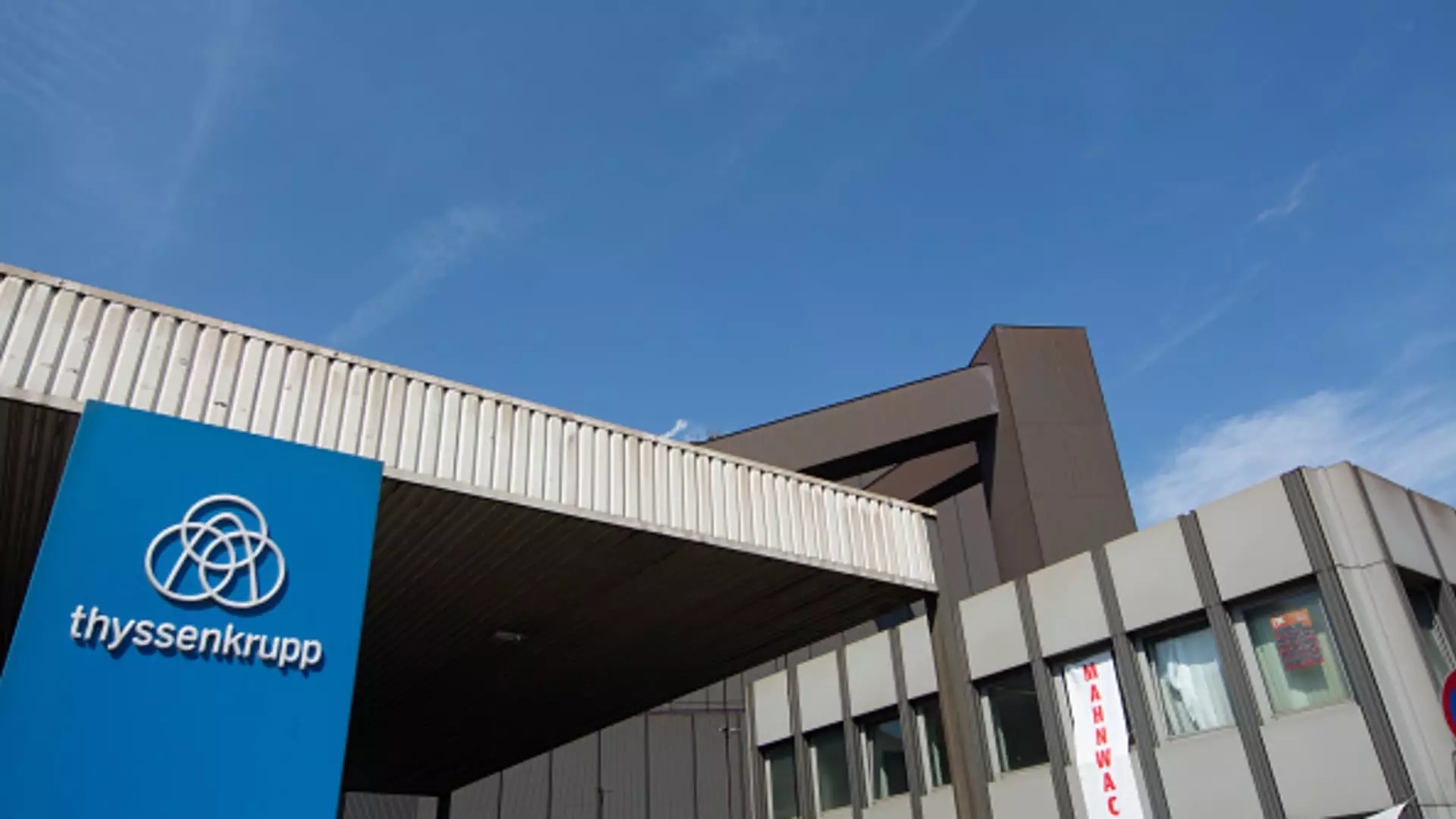Thyssenkrupp, the industrial giant from Germany, has recently caught the attention of investors and analysts alike following its quarterly earnings report that revealed a narrowed net loss. The fiscal figures indicate a degree of stabilization amidst ongoing challenges, particularly within its Steel division, which has experienced significant impairments. By reporting a net loss of 1.5 billion euros for the fiscal year ending September 30, significantly down from 2 billion euros the previous year, the company seems poised for a more sustainable fiscal strategy. This nuanced financial performance suggests that the company may be finding a foothold in a tumultuous market.
On a positive note, Thyssenkrupp’s shares surged by 7.9% following the earnings announcement, reflecting investor optimism. This increase can be partially attributed to the company’s adjusted earnings before interest and taxes (EBIT) of 151 million euros, surpassing the Visible Alpha consensus of 120 million euros. Such a performance indicates a burgeoning efficiency in operations, particularly given the backdrop of the company’s struggles. Analysts from Citi noted that this “small beat” on the fourth quarter marks an encouraging end to an otherwise turbulent fiscal year, signifying potential growth trajectories.
CEO Miguel Lopez emphasized that the forthcoming fiscal year will be critical for Thyssenkrupp, especially in relation to its core strategic challenges surrounding Steel Europe and Marine Systems. His focus on refining performance across all business units aligns with the global push towards sustainable industrial practices. This is especially pertinent as the company navigates the complexities of asset impairments, which exceeded 1.2 billion euros for the past year. The commitment to harness the opportunities of the green transformation is commendable; however, it remains to be seen how effectively the company can implement this strategy amid prevailing market uncertainties.
Thyssenkrupp is actively restructuring its Steel Europe division, taking bold steps towards creating an independent entity. The strategic partnership with EP Corporate Group, including the recent sale of a 20% stake, underscores a significant shift in operational dynamics. The ambition to form a 50:50 joint venture could potentially stabilize and revitalize the struggling division. Concurrently, discussions regarding the sale of its Marine Systems business reflect a broader strategy to streamline operations, although these negotiations with the German government for state participation highlight the complexities of navigating political contingencies.
Germany is currently grappling with economic and political challenges, witnessed by a decline in business activity reaching a seven-month low in September and the collapse of the ruling coalition. As a vital export nation, the economic landscape poses risks that can no longer be overlooked. Thyssenkrupp’s performance serves as a microcosm of the broader industrial struggles within Germany, revealing the urgent need for adaptation and innovative solutions in response to subdued global demand and internal political challenges. The path ahead remains fraught with both obstacles and opportunities, compelling Thyssenkrupp and its counterparts to rethink strategies for robust recovery and growth.

